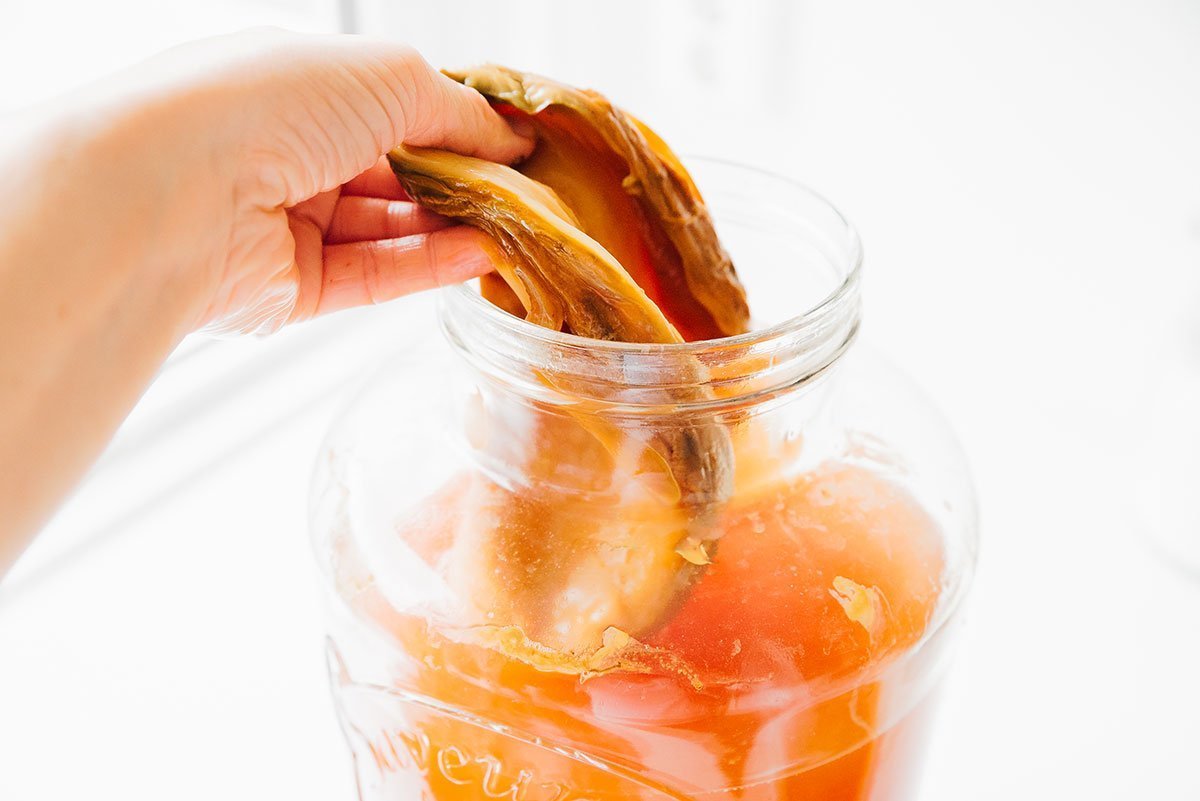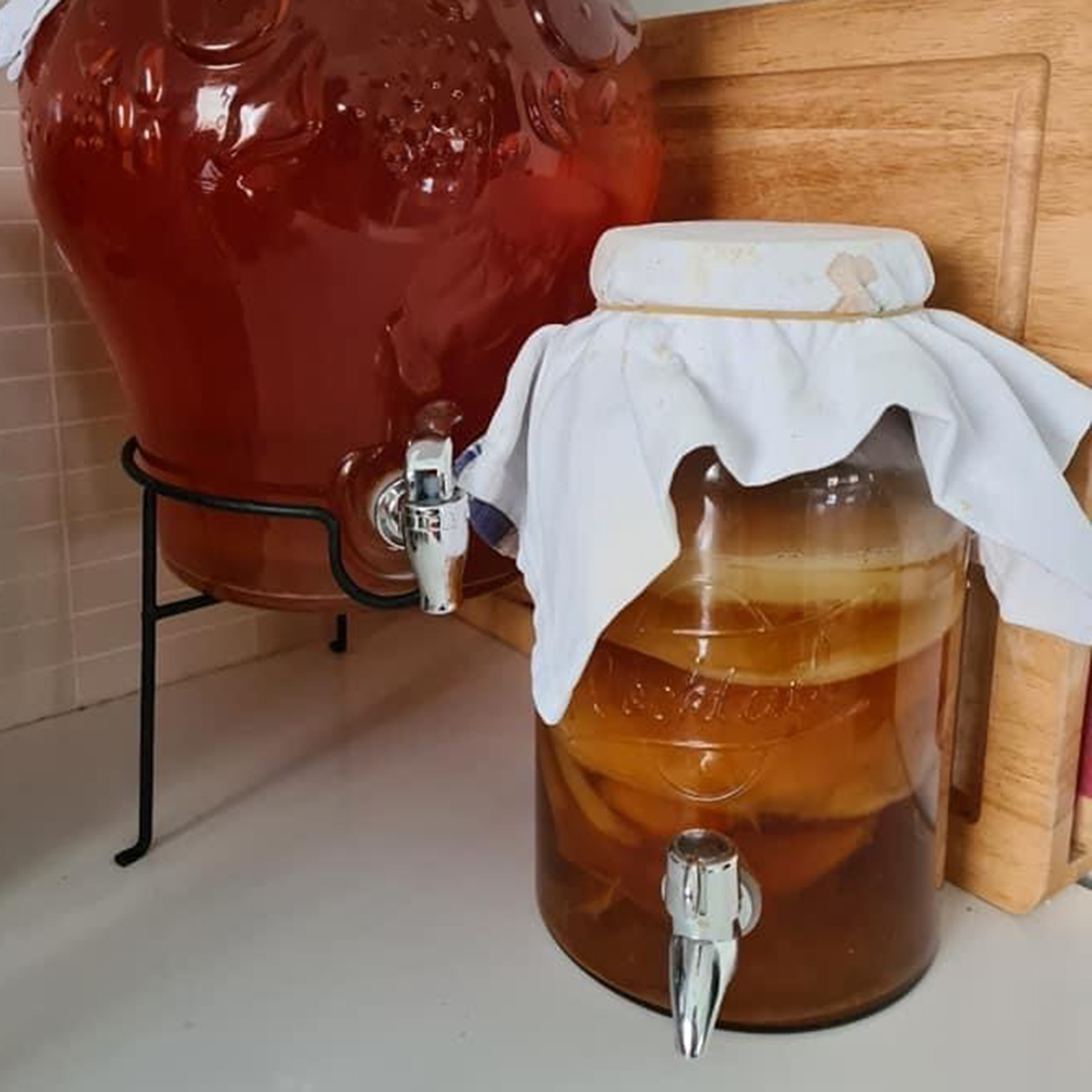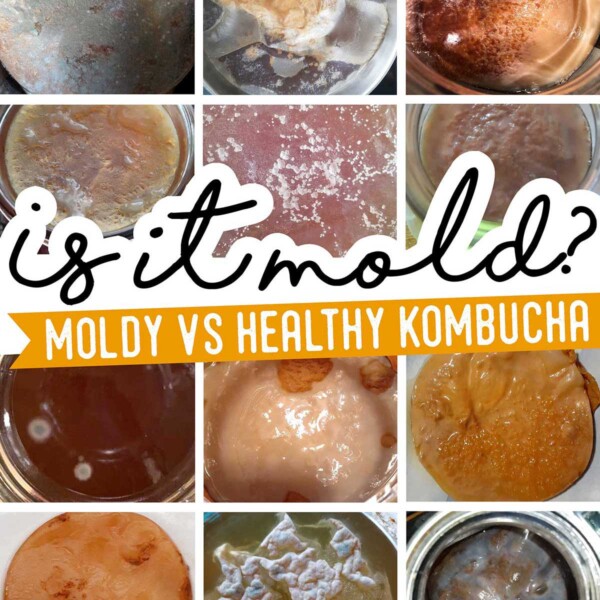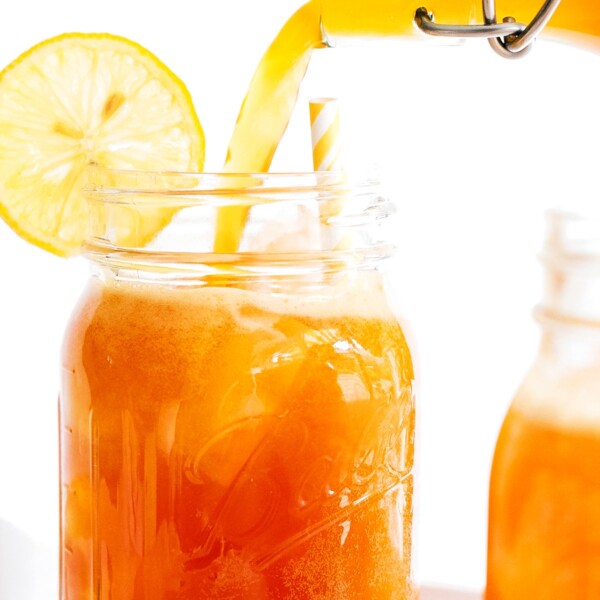Is it bad if your kombucha SCOBY sank? And should you do something to fix it? Answering this common kombucha question here!

It’s a question I get all the time. “My kombucha SCOBY sank! Is it dead / broken / moldy / still working?” I’m here today to tell you that it is perfectly okay if your SCOBY sinks!
And while a SCOBY may sink or float around the kombucha, a new baby SCOBY will likely form on top. This is also okay! A SCOBY forming on top of kombucha indicates healthy kombucha, but a sunk SCOBY doesn’t necessarily indicate unhealthy kombucha.
The SCOBY will continue powering the kombucha reaction, regardless of where it decides to hangout in the jar.

Why your SCOBY sank
There are a few reasons why your kombucha SCOBY may have sunk.
The most obvious is physics! When you drop in your SCOBY, it will initially sink but then slowly float back up to the surface. As carbonation develops in the brew, it will lift the SCOBY back to the top.
If the natural carbonation of your first fermentation kombucha is slowed, this could cause the SCOBY to sink. Carbonation, which is a bi-product of the yeast, could be slowed down by a drop in temperature or inactivity of the yeast.
With that said, not all SCOBYs are created equally! Your SCOBY may be more dense and heavy, which could cause it to perpetually sink.

Signs of an unhealthy SCOBY
While a sunken SCOBY does not indicate an unhealthy SCOBY, there are a few signs you should look out for:
- Dry or fuzzy (circular) patches, which would indicate mold
- White, gray, green, or black areas, which would also indicate mold
- A completely black or shriveled SCOBY, which could mean a dead SCOBY (this is rare)
Grab our comprehensive guide to identifying mold on kombucha here.
So should you worry if your SCOBY sinks?
In conclusion, if you ever find your kombucha SCOBY sinking to the bottom of the brew, don’t panic! It’s perfectly normal and doesn’t necessarily indicate any issues with your fermentation process.
Remember, the SCOBY is adaptable and can change its position based on various factors. As long as the brew smells and tastes fine, and there are no signs of mold or other abnormalities, you can continue brewing with confidence. Embrace the deliciousness of kombucha brewing, where even a sinking SCOBY can create a delicious and nourishing elixir.




I’ve had my scoby about a year and it’s never grown. It’s thin and dark in color. I’ve been brewing kombucha and it tastes ok. Is there something wrong with it?
As long as there are no signs of mold it should be okay! 🙂
My SCOBY has holes (like Swiss cheese) and seems to be dissolving/disintegrating. Is something wrong with it?
That’s odd! Holes in a SCOBY can be normal, but usually once it has formed it doesn’t dissolve. Is it still a very thin SCOBY? If it’s growing still, I could see if breaking apart a bit?